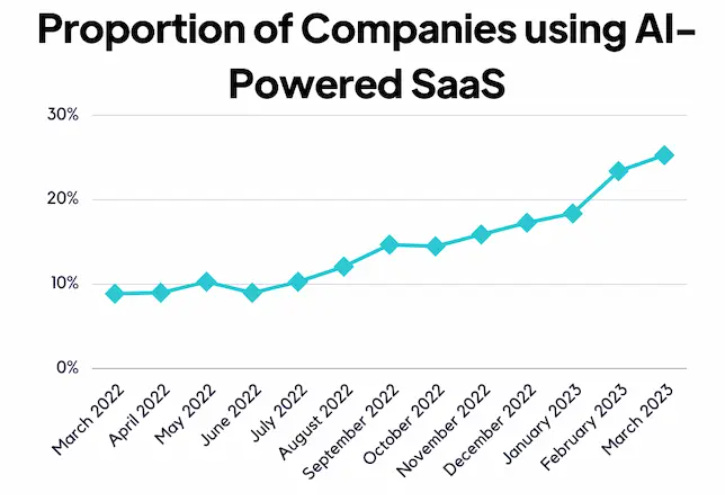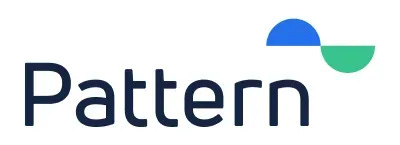Travel Tech Essentialist #114: Who, not where
This week’s newsletter turned out to be a bit heavy on the AI side, but I think you’ll find the content insightful. My main takeaway is that success in travel will depend on the ability to use AI to provide a better context and personalization. It’s not about the where are when, but about understanding the who and why first. So, essentially, use AI for better matching, not better searching.
We have to change our business. We need to shift from asking where you are going and when you are going to who you are and what you want. That's really the vision..We have some really huge ideas that I think will expand Airbnb way beyond travel….We don't have a search problem in the future. We have a matching problem. So we are gonna use AI to match you to whatever you want. — Brian Chesky
The differentiator in the future will be less about who has the largest public dataset. It will be about who built and made innovative use of proprietary sources of data. — Scott Belsky
This newsletter is sponsored by Pattern
Pattern, a global InsurTech MGA, enables travel, online booking, and registration companies to design, build and embed relevant insurance offerings seamlessly in their customer journey. Pattern protections address risks associated with a change of plans, travel disruption, inclement weather and medical assistance. Pattern parametric protections dispense customer compensation automatically when an event is triggered. Find out more
0. The most clicked link in the previous newsletter
The most clicked link in Travel Tech Essentialist #113 was Erica Fischer’s city maps of photos by locals and tourists.
1. Airbnb is using AI to build a better match, not a better search
Jason Calcanis had a great conversation with Brian Chesky. Starting in minute 49, Brian talks about how he sees Airbnb using and radically transforming its business with AI. The large language models are the foundations that act like the AI highway and Airbnb sees itself as designing the cars on the highway and tuning the model based on customer data. ChatGPT's answers are not based on a personal understanding of your needs, but the good answers to a question such as "Where should I travel?" need to take into account your preferences and your needs. Airbnb wants to lead in AI personalization. Airbnb's vision is to move beyond the where (are you going) and the when (are you going) and shift to the who (are you) and the what do you want. Airbnb will need to build robust and rich customer information in order to understand and personalize where you want to go and what you want in your life. And this opens up many opportunities for moving Airbnb beyond travel.
2. The coming personalization wave
This post by Scott Belsky is very much in line with how Brian Chesky envisions the use of AI to make better matches. Scott writes about the personalization wave and how the future of search, commerce, and decision-making will be hyper-personalized through interfaces and personal agents that will cater to our needs over the course of our life and become the dominant interface for our decisions. Scott believes that an AI model’s recommendations will increasingly please us more than our own favorites. This is already happening in verticals such as music, where Spotify’s new “DJ” and “enhance” features are well on their way to replacing our own favorites. Scott suggests that travel can be another vertical where this can and will happen. Read + Implications
3. Direct to Consumers
Airbnb introduced its 2023 summer product release with over 50 new features. Brian Chesky later asked on Twitter what else the company could improve on, and plenty of people answered. I am sure that this direct interaction with consumers generates plenty of good ideas for his team to work on. Elon Musk took notice of this exchange and commented: “This kind of interaction with users is awesome. Other companies should take note.”
4. Travel's top 5 strategic ChatGPT questions
Insightful post by Stuart Greif (Chief Innovation & Operating Officer at Forbes Travel Guide) on what he sees are the top five most important, strategic, game-changing questions for travel players. Here are three of them:
What is the basis of ChatGPT’s algorithm that will synthesize and favor certain content, offerings, and services?
Will products be commoditized, and how can brands generate customer loyalty?
What are the implications of the coexistence of ChatGPT and traditional search?
5. Every startup needs an AI strategy
User expectations have changed. When one email composer window autocompletes sentences, every email product will need to follow. When one customer support bot provides a meaningfully better experience to answer questions, every competitor will need to match it. This is why every startup needs an AI strategy. Tomasz Tunguz (VC at Theory and previously at Google) writes on the three different levels of AI strategy that businesses will need to explore. Read + Thomas Tunguz.
6. The ChatGPT Effect
According to Cledara (SaaS Subscription Management Platform), 24.2% of their more than 1000 customers are using at least one AI tool, up from just 8.9% a year ago. Read +

7. You can’t build a company based on a trend or a “space”
It’s obvious but worth repeating. Marc Andreesen wrote Why there’s no such thing as Web 2.0 sixteen years ago, but it’s timely and relevant to reread it today (replacing “Web 2.0” with “AI”). Marc argues that there is a market, a product and a company, but there is no such thing as a "space" (as in "the web 2.0 space"): What happens when startups start getting referred to as “Web 2.0 startups” or as being in the Web 2.0/B2B/mobile/pen computing “space”—is that trends are getting mistaken for markets and products. You can’t build a company based on a trend. Trends are obvious, and there’s no startup opportunity in the obvious. You have to build a company based on a new kind of product and you have to take that product to a market. If the product is compelling to the market, it will succeed. If the product is not compelling to the market, it will fail. It’s not much more complicated than that.
8. Tourism in the Metaverse
This article by McKinsey explains the potential of tourism in the metaverse and its $20 billion opportunity for the travel industry. Tourism in the metaverse looks at how virtual travel experiences could revolutionize the industry and what it means for the future of travel. Virtual experiences offer clear potential for the tourism and travel industries, with the prospect of hybrid and fully immersive digital destinations. But McKinsey indicates that opportunities may, for now, be limited to a few key touchpoints—most prominently, travel inspiration, events, and edutainment. It may take longer for the metaverse to reveal its utility for end-to-end travel experiences. Read + McKinsey.

9. Online Travel Q1 2023 revenue
Growth Q1 2023 vs Q1 2022: growth across the board, ranging from Accor’s +54% to Vacasa’s +4%
Growth Q4 2022 vs Q4 2019: Only Tripadvisor (-1%) had revenues in Q1 2023 below Q1 2019, with Airbnb surging with +115% growth.
Here we can see Q1 2023 revenues and also how much additional revenue has been created vs the same period the previous year. This gives us a different perspective on relative sizes. So, for instance, Marriott had $1426 million additional revenue in Q1 2023 compared to Q1 2022, which quadruples Tripadvisor’s Q1 total revenue!
10. Thanks in advance for your input
I'd love your input in completing this short 1-minute survey on generative AI's impact on the travel industry. Results will be shared in a few days. Thank you!
Travel Investor Network
Travel Investor Network is a private platform for investors (VCs, Corporates, Family Offices, Angels) and innovators in travel, hospitality, and mobility.
→ If you are a startup looking to raise a round (from pre-seed to Series D), maybe I can help (for free). Please start by completing this form.
→ If you are an investor interested in joining the Travel Investor Network, please complete this form.
Talent Network
The Travel Tech Essentialist talent network has companies across the travel tech landscape that are currently hiring.
→If you’re a candidate looking for new opportunities, apply here to join at no cost to you and get introduced to hiring companies.
→If you’re a company looking to hire, request access to meet world-class candidates open to new opportunities. I send out a new drop every two weeks.
If you like Travel Tech Essentialist, please consider sharing it with your friends or colleagues and hitting the heart button up top (it helps more readers discover it)
Thanks for trusting me with your inbox,
Mauricio






